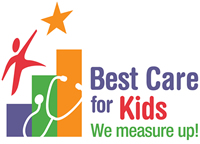Competent project creating the help of an Australian assistance getting a squad of certified researchers, editors and writers. Make the best task help you to now
Best Care for Kids’ quality work can be divided into several service lines:
- Benchmarking. Projects in this category involve data collection for the purpose of benchmarking. The data collection, by itself, does not strictly constitute quality improvement work, but is necessary to inform future projects.
- Coaching. Our office‐by‐office approach builds relationships and gives our team a better
understanding of practice dynamics and the forces that influence practices to pursue change/improvement or defer or decline participation. Engaged practices worked with the coaching staff to brainstorm about practice changes, health insurance/billing struggles and challenges with Arizona’s complex support system for children in need. Our coaches recruit practices for Learning Collaboratives during this one‐on‐one stage, and are also available on a limited basis to advise practices that are not willing or able at this point to participate in a group learning process on quality improvement activities. - Group Learning. This is the Learning Collaborative service line. We use the Breakthrough Series model, and require that each practice bring a team that includes, at minimum, a clinician, a member of the staff, and a member of the front or back office staff.
- Healthcare Systems Work. None of our improvement work will be sustainable without addressing the underlying health systems available in Arizona. State systems are available to support children with special healthcare needs, yet many of these programs are isolated and fragmented. Our staff convenes stakeholders in a collaborative, learning environment in order to improve availability of, and access to, these services. In addition, our care coordination team collects data that helps to provide actionable feedback to several of Arizona’s public agencies providing children’s health services, such as Medicaid, Medicaid long‐term care, the Division of Developmental Disabilities, and the IDEA Parts B and C programs. Historically, these programs have been complex and difficult for families to navigate; using our data, we hope to accelerate systems change that simplifies the enrollment and services provision arms of these programs.
While these lines weave together, they are different enough to be described separately. Each project may have an advisory group, and there is some form of evaluation in each.

